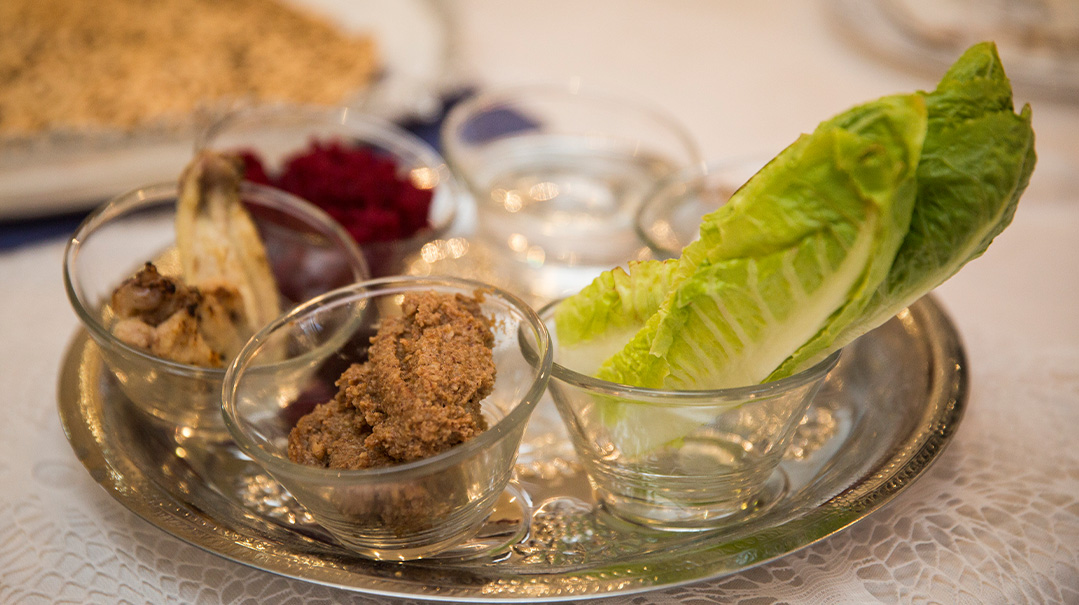Color by Number
| May 16, 2023It’s ’cos we’re weird, okay? Everyone goes to school. Just not us

Red, red.
Orange, orange.
Green… blue?
“Hmm?” I ask Shuki, holding the two cards side by side. “Are they the same color?”
He giggles and switches the green for the other blue card, lining up the pair with his other sets.
“Good!” I enthuse. “Now tell me what color that is?”
“Blue!” he squeals, and we clap together. He tumbles into my arms, laughing.
“Ima?” Shari taps my shoulder. A fine mist of flour lands on the floor beside me. “We’re out of chocolate chips.”
Chocolate chips. Right, I’d left Shari in the kitchen, decoding some fractions to follow the steps of a recipe. Time to switch tracks.
“Grocery time!” I announce, and Shuki abandons the card game gleefully to run for the door.
Michali looks up from the table where she’s been adding and subtracting with blocks while I practiced colors with Shuki.
“Finish up, Mich, and then meet us at the front door.”
I turn to the twins, who are busy at the dining room table, along with every craft supply I own. “How are the parshah projects coming along?”
“Ooooh, don’t look!” Hudi shrieks, just as Hodaya says, “Come see, Ima!”
“Hey, don’t come, it’s a surprise!” Hudi growls at his twin.
“Why? I want to show Ima. It’s pretty!” Hodaya retorts.
“Hudi, Hodaya, we’re going to the grocery, we’ll continue your dioramas later, okay?”
I grab a pen and paper to draw up a quick list in clear, bold letters — the twins can find the items in a scavenger hunt-like activity. I’ll bring a notebook for Michali so she can write down numbers that she spots, see if she finds them all, 1-10. Shari can work out what things cost and find the right change to pay. And Shuki’s too young for formal activities in the grocery store, but we’ll keep on practicing colors, I’ll ask him what different items are. And they’ll all choose a treat at the end. Shari gets her chocolate chips, everyone has a field trip, and bonus, it’s educational, an all-around win.
Everyone… but wait, I haven’t accounted for Yirmi. Come to think of it, I haven’t seen him since he point-blank refused to try the science experiment kit I ordered.
“I know what happens when you mix the ingredients, I’m not interested in babyish activities,” he’d mumbled when I showed him the box.
Yirmi. He’s my second-oldest, after Shari. Bright, even gifted, but somehow, recently, he’s just not interested in any of the fun activities I prepare. He’ll do pages in his workbook as fast as possible and then simply disengage.
I leave Shari helping the little ones into their coats and knock on Yirmi’s door. With an effort, I muster up a smile. “Yirm. We’re going to the grocery, you coming?”
He wrinkles his nose. “Nah, I wanna stay home and read.”
I hesitate. He won’t be alone, Michoel is downstairs working in his office, but… why doesn’t he want to come along?
The store is perfectly quiet; midmorning on a school day is a great time to shop. A few women pushing carts or strollers, an older man consulting a list, frowning.
I send Hudi and Hodaya to the produce aisle with their list, and Shari heads off to find the chocolate chips. I turn my attention to Michali and Shuki, and we start pointing out numbers and colors. Everything’s more exciting on a trip; it’s the best way for a child to learn.
A woman with a long auburn sheitel passes by, gives me a funny look. I smile pleasantly and go right on. So people aren’t used to seeing a mother turning a shopping trip into an educational experience. What do I care?
At the checkout counter, I hand Shari my purse, and she roots through to find the bills and coins that add up to exactly $33.71. Auburn Lady is behind us, and she sighs deeply when Shari fumbles for the right change.
“We’ll just be a minute,” I tell her, nicely but firmly.
She rolls her eyes. “Don’t your kids go to school?”
I lift my head proudly. “No,” I say.
When we get back home, Shari runs to the kitchen with the chocolate chips, the twins scamper back to the dining room, and Michali and Shuki cluster around me for Parshah Story Time.
See, Mrs. Don’t-your-kids-go-to-school? I’ll bet your children don’t run to learn and do their work.
Then I notice Yirmi, sprawled on the sofa. He’s reading a comic — so not educational. He loves this series, so I bought him the next couple books in Hebrew, figured he could improve his Ivrit language skills through something he’s interested in, but three guesses if he’s touched them.
“Recess,” he growls when I come over.
Recess? We never call it that here, it’s so… school-like, so arbitrary. I pride myself on doing things differently, I go by what each child needs. Sure we have breaks, but breaks are often fun activities, stimulating, productive.
Besides, when the school day is over, they’re outside playing with the neighbors on the block, Yirmi has his Little League club, Shari goes to ballet at the community center… in my opinion, that’s a lot better of a way to unwind than to slouch on the couch doing nothing.
The thing with Yirmi is… he doesn’t need a break right now. He needs a challenge. Seriously, he did the Math workbook in 20 minutes; all finished, all right. He’s not stretched enough, but he won’t let me challenge him to do more, work a little harder.
I bite my lip. We’ll figure it out.
It’s amazing what you can do when you live life on your own schedule.
It’s Tuesday Trip Day; we’ve gone hiking. Halfway through the route there’s a picnic table and play area, and the kids scamper off to the swing sets and slides and monkey bars.
I scan the mossy wooden bench; it’s clean enough. I pull out the flask of tea. Michoel’s already rooting for the almond clusters. I sigh deeply and the faint scent of pine trees tickles my nostrils. Hudi and Hodaya race each other up a tree, shrieks of laughter tumbling on the breeze.
It kind of blows my mind that more people don’t do this.
Michoel takes a long sip of the tea; I touch mine to my lips and snatch it away. It’s scalding hot. How does he drink it like this?
I turn to ask him, but his eyes are dreamy, distant.
“Okay, I’m curious,” I say.
He blinks and lifts his brows.
“What you’re thinking,” I clarify, laughing.
His forehead smooths. “You read me.”
I wait.
A minute later, he talks.
“You know my early morning chaburah?”
I nod; he joined the chaburah five, six years ago. Not long after we moved. And I think I can count on my fingers the days he’s missed.
“Reb Yossi’s leaving. He just got offered a shteller, they’re moving in a month.”
Yossi and Malka, leaving town? Oh, wow.
“That’s… big news,” I say. Oooh, I’m gonna miss Malka. She’d reached out to me shortly after Michoel joined the chaburah, sent kugel on odd occasions, and although we don’t speak much, I consider her a friend, someone I could call on.
She is going to be a great rebbetzin.
“Yes. I can’t say I’m surprised; he’s a rising star, someone was bound to find him one day.”
Michoel lapses into silence again. I wait, expectantly, then lose patience and nudge the conversation forward.
“So, what’s happening with the chaburah?”
Michoel loves the chaburah, never mind that he’s well into his forties, easily 15 years older than anyone else in the group, and even Reb Yossi is something like late thirties. He never minded, and neither did I — what’s there to care about when you’re doing the right thing?
Michoel shrugs, self-effacing, in answer to my question. “They asked me to take over.”
“You?” I startle, then beam. “Wow, that’s amazing!”
My unassuming husband gives a jerk of the head. He doesn’t like attention, but he deserves this, it makes so much sense. I glance sideways at him; short graying beard, tall, thin frame, a little hunched at the shoulders from hours of learning, working, working, and learning again. He barely sleeps. I’m so happy he’s being recognized.
“So, you’re doing it?”
He shrugs again. “They want to learn — I’m not going to turn them down,” he says. Then he closes his flask, says a brachah acharonah, and strides off to play ball with Yirmi.
He’s a good man, my husband.
Five a.m. is my time. Time to daven, to set intention for the day, to prepare supplies and get everything in order for the day’s learning. When the children come into an organized room, books and supplies and activities laid out for them, it’s ten times easier to engage them. Plus, with the juggle I’m always doing, staggering teaching time for each child and giving them independent work while I’m helping their siblings, it pays to be very, very organized.
Today I’m going to start with Shari — we’re learning hilchos Shabbos from an English-language sefer, and I’ve prepared a set of questions for her to complete when we’re done with the “class.” Michoel learns with Yirmi for the first couple of hours every morning; that’s one less child for me to think about, and the youngest two can begin the morning with free play in the basement, which we’ve turned into a giant children’s dream of a playroom.
I’m gathering a pile of old circulars for a craft project for the twins — they’re going to prepare a numbers board that I have in mind to use for a bunch of math games, and also to help Shuki practice his numbers. I love when everything falls into place; the schedule, the cross-curricular experiences.
A shadow hovers in the doorway; Michoel’s there, holding his tallis bag, and parting his lips like he’s thinking of saying something.
I straighten the circulars and set up crafting scissors, glue sticks, markers alongside. “What’s up?”
“I’m thinking about Yirmi,” he says. My hands still. “Something’s… I don’t know. Not working well. He’s kind of jumpy.”
Jumpy. The word worked, but it didn’t really do justice to the tension in Yirmi’s shoulders, the way his lips seemed perpetually twisted downward.
I glance around my perfect dining room; sefer and worksheets at the head of table for Shari and me, project for the twins, daily schedule taped to the wall.
He’s right, we have to talk about Yirmi, but does it have to be now?
“I was thinking we should learn in shul, maybe it’ll change things up a little,” Michoel says. “We can stay in the beis medrash after Shacharis, I’ll bring some muffins or something. It’ll make things more exciting, he’ll feel important. Like a bochur.”
“Sounds… good,” I say slowly. “You want me to tell him?” Michoel would be leaving the house soon for his chaburah. I’m the one who wakes Yirmi to join his father for Shacharis.
“Nah, I’ll suggest it right after davening.”
“That works.” I hope so, anyway. We need to find a way to get Yirmi’s excitement back. He’s a bright kid, loves to learn, when he sits down to work with me, he gets everything right, first try. But when I challenge him to take the next steps on his own, he’s not interested.
“Great. See you later.”
Michoel turns to go, and I register something. He’s wearing a suit jacket, instead of his standard button-down shirt and cardigan.
“Wait, you’re wearing your Shabbos suit?”
He glances down and then up at me again for a moment. “Yes, well — I just figured—” He shrugs. “Look, Reb Yossi always wore a suit, and now that I’m giving the shiur.…”
“What?” My voice comes out tight, too high. I suck in a breath; I don’t want the kids waking up, not now. “They chose you as you are, Michoel, you don’t need to dress the part or — or impress anyone.” I’m aware of my voice rising again, agitation coloring my tone. This is important, so important, why doesn’t he get it? This whole peer pressure thing, follow the leader, sheep style… this isn’t my husband, it isn’t me. We’ve always been different, above that. We homeschool our kids, for goodness’ sake.
Michoel looks confused, then his eyes clear. “Oh, I’m not trying to be like everyone else or anything,” he says, gently. “It’s just a respect thing. I feel like it’s more kavod to give the shiur looking the part.”
Looking the part.
Ugh.
“If it bothers you…” he starts, then trails off. I know why; it’s because he doesn’t have anything to offer me. He’s not going to change his mind about his principles. He’s easygoing to a fault about everything else — goes along with my plans for the kids, the schedule, everything — but he’ll never step down from his values.
That’s why I married him.
That’s how he went from senior researcher at the Scientific Institute of Astrophysics of America, to newbie student at Aish HaTorah at the age of 32.
“It doesn’t bother me,” I say, forcing the words out. “But if you’re gonna wear a suit every day, you need a weekday one.”
“Oh. I guess.” He looks down at himself, surprised. “You know best.”
And despite myself, I chuckle.
Apparently, having a husband who’s a rosh chaburah means I have to play rebbetzin. Kinda.
“Would you mind hosting a young couple this Shabbos? They’ve just moved here, the husband joined our chaburah. I feel like they could use an invite,” Michoel had asked me, earlier in the week.
Sure I would host. We didn’t do it very often, it could be nice.
“So, what’s your name?” I ask the wife, who honestly looks like a girl. Had I looked that young when I was first married? She couldn’t be more than 19.
“Chani. Chani, um, Ringel.” She gives a self-conscious giggle. Okay, they’re like, brand-new married. This is adorable.
“So what brings you to our neck of the woods?”
She gestures at her husband. “Law school,” she says. “And I have an aunt here…. We kind of knew the area.”
“That’s nice,” I say, setting down the array of colorful glass dip dishes and counting them. Chimichurri, homemade hummus, olive tapenade, spicy olives, tomato-cilantro salsa, fennel and cucumber salad. Perfect.
Chani eyes the dishes. “Wow, so pretty,” she says.
Michoel pours the wine and clears his throat.
“V’shamru…” he sings, and I blink.
This isn’t his standard tune.
We have a family tune for the morning Kiddush, a song we composed together when we first got married. We sing it every week, the kids love it, and for me, it brings back warm and fuzzy memories, picking out tunes on my guitar on the tiny mirpesset that fit exactly one chair, the other person could stand. Granted, it wasn’t a typical song, but Michoel had never had a problem using it for Kiddush.
Now he sounds… different. Typical. Like his rebbi, where we used to eat when we first got married.
“What’s up with the yeshivish Kiddush?” I ask him casually, under my breath, as we meet in the kitchen to wash.
He shrugs. Our guests and the kids are already sitting at the table, waiting. “I just figured I’d do something more familiar, with guests here and all.”
Familiar?
Seriously, not this again.
“Don’t tell me it’s respecting them to do a tune that they like,” I try to joke.
Michoel shakes out a crumpled towel and hangs it on the towel hook. “No, it’s just about making people comfortable,” he returns. “And, okay, yes, it’s more what they’d expect from… you know, someone who gives a shiur.”
I open my mouth — there’s so much to say, to argue with that, you can be who you are, why pretend and fake to fit in and fit an image, and—
“Ahuva? We’ll talk later. Everyone’s waiting.”
I sit and stew over sourdough and dips. Chani and her husband politely refuse most of the salatim, but I notice they finish the olive tapenade between them. First course is salmon, which I’m glad to see is normal enough for everyone to eat.
“Your salmon is great, it’s so flavorful,” Chani compliments me. “What’s your recipe?”
“Thank you! It’s not really a recipe, literally just olive oil and some lemon-pepper spice. But it’s wild-caught salmon, not the commercially produced farmed fish. You can really taste the difference.”
Chani gives me a blank look. Okay, seriously, has she never heard of this stuff?
Hudi and Hodaya are fighting over the last of the spicy olives. “Hudi, Hodaya, show Abba what you’ve learned this week,” I say hastily.
Michoel oohs and aahs over the projects, which were mainly an overabundance of glitter that sort of formed a picture of a fruit basket. “We’re talking about bikkurim, it’s almost Shavuos,” I explain.
Chani looks confused. “You did this at home?” she asks.
I smile. This is fun; I love talking about what I do and why. Honestly, I believe the world would be a better place if more people homeschooled and society was less of this mindless follow-the-leader.
“Yes. We homeschool the kids. It’s—”
“Ahuva, should we move on to cholent?” Michoel says suddenly.
I look at him, startled. It’s so out of character for him to cut me off. Did he… was it… something I said?
“Sure,” I say, trying to decide if his timing was just off, or if — what had I been saying? About homeschooling?
Was he seriously trying to keep that quiet? What happened to being proud of our choices, standing up for what we thought was best for our children….
I stand. “Who’s helping serve the main course?” I call out.
Shari jumps up; Yirmi pretends he didn’t hear. No surprises there.
I ladle cholent into a large glass bowl, send Shari in with a platter of oven-baked schnitzel, and toss the salad.
“Help yourself,” I tell the guests.
Chani thanks me and takes a piece of schnitzel, but she seems to be debating on the cholent. Oh right, it’s purple.
“Don’t worry about the color,” I tell her. “I use beets instead of potato. So much healthier, lower carbs, and you’d be surprised, it tastes almost the same.”
“Oh. Right. Wow,” Chani says, smiling faintly. She doesn’t take some, although her husband makes an impressed-looking face and serves himself a medium-sized portion.
“So, what were you saying about homeschooling?” Chani asks me. She’s not eating much; I guess she feels like making conversation will cover up for it.
But hey, I don’t mind, and see, Michoel? They want to talk about it.
“It’s a passion of mine,” I say, smiling. “I love teaching, I love having my kids home, and I believe that homeschooling is ideal. Why go to school, be part of an institutional system, where there’s arbitrary rules and regulations that aren’t tailor-made for your child — if you don’t have to be?”
I’m warming to my pitch, when Yirmi makes an impatient sound. He’s shoved his bowl of beet cholent away and looks mutinous.
“It’s ’cos we’re weird,” he mutters.
“Yirm—” I say, startled, as Michoel turns a questioning look on him.
Yirmi raises his voice. “It’s not why we homeschool. Everything you’re saying. It’s ’cos we’re weird, okay? Everyone goes to school. Just not us.”
And then, with Chani and her husband — I still don’t know his name — watching in horrified fascination, he storms out of the room.
“Okay, so that was kind of mortifying,” I say, closing the kitchen door behind me. Meal’s over, guests left, kids disappeared to play, and as long as there’s cleaning up to do, we’re basically guaranteed our privacy.
Michoel’s sliding pans of leftovers into the fridge, with scientific precision and order. If not for him, my fridge would be a disaster zone.
“What?”
He looks genuinely confused.
“Hello?” I flutter my fingers in half a wave. “Yirmi, what he said, guests, I felt like such an idiot.”
“He’s a kid,” Michoel says, mildly. “But that reminds me, we have to talk about him. It’s not working great, the learning, even in the beis medrash. I’m not sure—”
Something curdles in my stomach. The cholent? “Nisht oif Shabbos geredt,” I say quickly.
He gives me a long look, then shrugs. Ugh, I hate how he makes me doubt myself without even saying anything. He’s right; I’m pushing off the conversation because I have no idea what to do, not because I don’t want to talk about our kids’ education on Shabbos.
But Michoel’s always been a nice guy, and he obligingly changes the subject.
“We’re finishing a masechta at the chaburah, there’s going to be a siyum,” he says. “It’s next Monday, wives are invited. You’ll make it?”
Michoel’s chaburah have siyumim all the time. But I don’t believe in leaving kids with babysitters at night, unless it’s one thousand percent necessary. But now I’m the wife of the maggid shiur, the rosh chaburah, whatever he’s called. I guess I have to show up.
And it’ll be nice, too, seeing Michoel in action, leading, speaking….
My mouth curves into a smile. “Sure. I’m excited!”
He smiles back, a little shy. For a moment it feels like we’re newlyweds again.
“And Ahuva… maybe—” He stops. His lips part, then close again. “Never mind.”
“What?” I ask, suddenly on edge.
He seals his lips shut. “Nothing. It’s fine. Totally fine.”
I give Shari instructions one more time before heading upstairs to get dressed. I debate whether I need lipstick. I never really wear much makeup, just a tinted moisturizer and maybe some blush. But this is a siyum, I should probably go a little fancier… lip gloss with a nice sheen, that’s perfect.
I step back to survey my outfit. I’d considered texting Malka, asking her what was the type at the siyumim, whether she’d worn Shabbos clothing, but then I’d decided against it. What did I care what anyone else did?
Now I’m happy I went with my gut; I love this outfit. Soft white blouse with a bowknot at the neck, tucked into a white and soft blue skirt that I designed and dip-dyed myself, along with a matching headscarf. I slip on pale-blue ballet flats and I’m ready to go.
Michoel’s waiting outside, Shabbos suit, black-and-silver tie, black hat. He never used to wear a black hat; it happened sometime in the last… year or so?
“You look great,” he says, but there’s something in his voice, not what he says, but how he says it.
I don’t press him.
It’s a ten-minute walk to the shul, and the evening air is soft with sunset. We walk silently. Michoel’s lost in thought, probably revising his speech, and I’m… just inhaling the moment, the sound of cars, of birds, of leaves in the trees.
Nice. I’m never out evenings; I’m a real homebody, love being there to put the kids to sleep, and then to take care of the house and simply enjoy the cozy quiet.
The shul’s function hall, on the other hand, is the polar opposite of cozy and quiet.
Oh, it’s elegant. Very elegant. Elegant tables with fancy tablescapes, elegant women in fancy two-piece sets and lots of sparkling diamond jewelry. I glance down at my hand, whew, I’m wearing my rings, but I’m so not a jewelry person. I’m not wearing anything else, not even the clip-on silver flower-shaped studs I usually wear for Shabbos.
I find a seat at an emptyish table in the corner so I can observe everything that’s going on. There are a lot of people, maybe 35 women, wow. Two women sit down near me, identical sleek lace-top sheitels and heavy makeup. One of them gives me a sweet smile, and then turns back to her conversation with her friend.
The women around me nibble at their appetizers — beef spring rolls with a dome of rice and some artfully arranged greens — and I go to wash. The basket of sourdough rolls looks untouched. I look around; I’m the only woman eating bread. Oh, well, no surprises there.
Another woman makes her way over to the table, looking uncertain. I remember I’m the rebbetzin here, and wave her over; she looks grateful.
We make small talk — what’s your name, nice to meet you — and her eyes widen a little when she puts two and two together.
“Oh — you’re the wife of….” She gestures vaguely in the direction of the men. “My husband says his shiurim are great.”
“Thank you!” I smile, genuinely. Michoel is great, it’s nice to hear that others see it, too.
A couple of waiters bring out the soup — wow, someone really invested in this siyum. Nice! And then the muted hum from the men’s side of the hall goes quiet. I see Michoel ascending a podium at the front of the room. The women take a few minutes to get the memo, and then it’s quiet, expectant.
Michoel leans forward, elbow on the shtender, and talks slowly. At first, I follow the devar Torah, but then my mind wanders; I’m too visual a learner to take it in without any visual aid, or taking notes, or anything. But when he pauses, and looks straight in my direction, I snap back to attention.
“…thank my wife, Ahuva, for her dedication, allowing me this precious time, day in, day out….”
The woman I’d just been speaking to claps loudly, pointedly nodding in my direction, and I can’t help blushing as 35 women turn and stare in my direction.
And stare.
And then after two or three seconds, give a small smile and dart their eyes away. Like something’s wrong.
Thirty-five women in sheitels and lipstick and trendy outfits.
Sleek Sheitel on my other side clears her throat. “You’re the rosh chaburah’s wife?” she asks, only slightly emphasizing the word you’re.
I meet her eyes. “Yes, that’s me,” I say lightly, in a why-not kind of voice.
But I know.
I know exactly why not.
Today I task Shari with writing up a devar Torah nicely in her parshah file, give the twins a simple mapping activity, hand Michali a Har Sinai picture to paint green, and take Shuki to play in the backyard.
Then I seat myself on the swing, watch him zoom off on his tricycle, and finally, in the dewy morning air, squinting against the sunlight, I let myself remember.
The move in ninth grade, from tiny Ruston to big, bustling Brooklyn, with trends that changed at the speed of a traffic light turning red, so that no matter how much you thought you were catching up, it was just minutes until you were left behind again.
My high school class, the strict conformity of it, same hairstyle and same bags and same way of talking, of being. The jail called school; so restrictive, so choking, just be the same as everyone else, or else. And the consequences, oh, the consequences of not being the same… of daring to express individuality. Daring to be.
The life-giving oxygen that had been my year in seminary; eschewing my classmates’ choices and escaping to a small, individual-focused school in Tzfas, where we learned Chumash and Navi and also an eclectic mix of other classes, like hisbodedus and chassidus and the meaning behind the zemiros and self-expression through creative art.
The decision to never return, both literally and figuratively.
I would never be forced to conform again.
And when I met and married Michoel — after several years as a madrichah in a seminary for newly religious women — it was one of the things I appreciated most about him: He had no need to be the same as everyone else.
He just — was.
He was himself, an astrophysicist and an aspiring Jew, a gentle man with a heart of gold, and there we were, ready to build our dreams together.
And we did. We really did.
I remember our tiny apartment in Kochav Yaakov, how the two small bedrooms somehow stretched and stretched again as our family grew, one child, two, then suddenly four with the birth of the twins. Michoel, working US hours and learning with never-ending enthusiasm the rest of the day. And I, I was finally content, finally there, stay-at-home mommy, homeschooling my children, giving them the chance to get it right, grow up outside the unforgiving bounds of society’s pressures.
Letting them be themselves, free, unfettered, unharmed.
Yirmi barrels into the backyard — “IMA!! I called you and called you. I’m finished. I’m going to play ball now.” And the peaceful moment shatters around me. I stand up, automatically, like I’m readying myself for battle. When did homeschooling turn into this?
“Sweetie, you have Little League later, I’ll take you at four. Let’s have a look at your workbook.”
It hurts to see how excited he is to leave the house.
Yirmi’s waiting with his bat and ball 15 minutes before I’m ready to take him. It’s a 20-minute drive there and back, and Michoel’s taking care of supper tonight, so on a whim, I park the car and sit myself on the bleachers to watch Yirmi’s game.
He doesn’t see me; he ran off the instant I stopped the car, but I see him, standing smack in the center of the team, listening to his coach giving instructions.
Baseball. That happened to be a great plus of moving back to the States. It had been hard, the transition, but the whole working-US-hours thing was getting too much, and at least we didn’t have to live in New York. We’d left our tiny apartment nestled among the hills for a four-bedroom house with a huge basement and nice-sized backyard in a nice out-of-town community. Signed the kids up for baseball and ballet, joined a shul, Michoel found his chaburah…. I’d continued homeschooling the children as our family grew yet again, first with Michali’s birth, then Shuki’s….
A call rises from the field, and I see the game’s begun; Yirmi’s at bat. Go, Yirmi, go, I cheer silently. I watch him listening intently to the coach, change his stance and… the crack of bat against ball. He’s off, leaping through the air, rounding first base….
He skids to a halt at second, and I see, even from up here, how the stiffness in his stance has been released. He looks so… young, free, carefree.
I just don’t understand it at all.
I’ve been giving him freedom. Giving him — all of the children — the gift of choices. Of not having to dance to anyone else’s tune but his own (and of course, Hashem’s). Keeping the Torah without a hundred thousand bylaws — what brand skirt to wear, how to cut your hair, what shoes are “in,” and which gadgets you absolutely must own, or risk eternal condemnation in the hallways.
I’d spent 12 years sheltering my family from it all, the pressures, the social norms that are so choking, chafing, unnecessary — and now, and now….
I think of Michoel, his new suit and his black hat. I want respect, kavod, to do what’s expected.
I think of the women’s faces when they turned to the rosh chaburah’s wife to see someone who looked so out of place, so different.
And I wonder if somewhere along the way I went from being an individual… to being someone who defined herself by her difference; to being just as obsessed with the trends as any of my Brooklynite high school classmates had been, only in the opposite way: bucking the social trends as a lifestyle, not as a set of individual choices under specific circumstances.
The game continues, Yirmi’s off again, ball soaring in an arc into the great blue sky, and my thoughts run circles, too: Where does individuality start, end, where is it valuable, where does it go wrong?
And could it be that just as there’s a time, a place, for daring to be different… there’s a time and place for challenging myself to be the same as everyone else?
Yirmi comes home from shul the next morning with a muffin — pure sugar, those bakery goodies, I wince inwardly — and Michoel sees me looking, signals me to the other room.
“He learned well, I promised him a reward,” he says, hurriedly, getting the words out before I can talk. “Listen, Ahuva, I know you don’t like working like this, I know you’re not into bribery and charts, do this so you get that. But it motivates him. Yirmi, he needs… I don’t know, but this self-fulfillment for its own sake isn’t cutting it for him.”
I peek into the kitchen. Yirmi’s kicking his legs, staring into space, crumbling the muffin in his hands. He’s… lethargic, depleted of energy, nothing like the kid I watched yesterday, rounding the bases and cheering on his team.
And suddenly I see him, a kid who needs to be part of something bigger, who needs the structure and rules and competitiveness of a class and peers and — yes, society — to help him learn and grow.
I see a child of mine who isn’t me at all.
I see a child who has a need… to conform.
All I ever wanted was to get it right for him.
But maybe getting it right for him looks different from what I’d always dreamed.
I breathe, past the pinch in my throat, the clenching in my gut. “You’re right, Michoel,” I say. “He needs something different. He needs something… more.” I swallow. “More than what we can give him here.”
Then I take the phone and head to my room to make a call.
“Beis Aharon Elementary School, how can I help you,” the secretary sings out. It sounds so… formal, so institutional, but also, I suddenly see, so welcoming, calming even.
I take a deep breath, and a strange, exhilarating freedom tingles through me, scary and warm all at the same time.
“I’m calling to ask about registering my son,” I say.
(Originally featured in Family First, Issue 843)
Oops! We could not locate your form.







